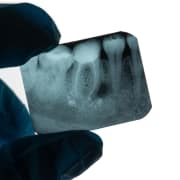Why You Might Need a Surgical Root Canal
Are you having symptoms of a tooth infection despite having a traditional root canal done? You may need what’s known as a surgical root canal or apicoectomy. This endodontic procedure removes root tips that are infected, allowing you to keep your tooth and experience pain relief. Our dentist in Thornton, CO, Dr. Robert McBride, offers this treatment. Here’s when we might recommend this approach.
Repeat or Ongoing Infections
Do you keep getting an infection in the same tooth? Or do you have an infection that isn’t improving? A standard root canal might not provide you with the result needed to prevent this from happening. Or you might end up with another infection if bacteria enters your tooth again. A surgical root canal can help correct this and prevent additional infections.
Narrow Root Canals
You might have calcium deposits in your canals, causing them to be narrower than normal. In this case, a traditional root canal might not be adequate for removing infected material. Having an apicoectomy done allows Dr. McBride to thoroughly clean these canals — keeping additional infections at bay.
Diagnostic Reasons
X-rays might not provide us with the details needed to diagnose problems with your tooth. We might have you undergo a surgical root canal that allows us to diagnose the issue, such as a small fracture that isn’t showing up on X-rays.
Damaged Areas
If your tooth root has damaged parts or if there’s damage in the bone surrounding the tooth, Dr. McBride may recommend an apicoectomy to treat these areas.
Visit Us for Root Canal Treatment
Do you have an infected tooth even after a traditional root canal? At Colorado Root Canal Specialist, Dr. McBride performs surgical root canals in Thornton, CO, to remove infected root tips — and keep infections from coming back!











